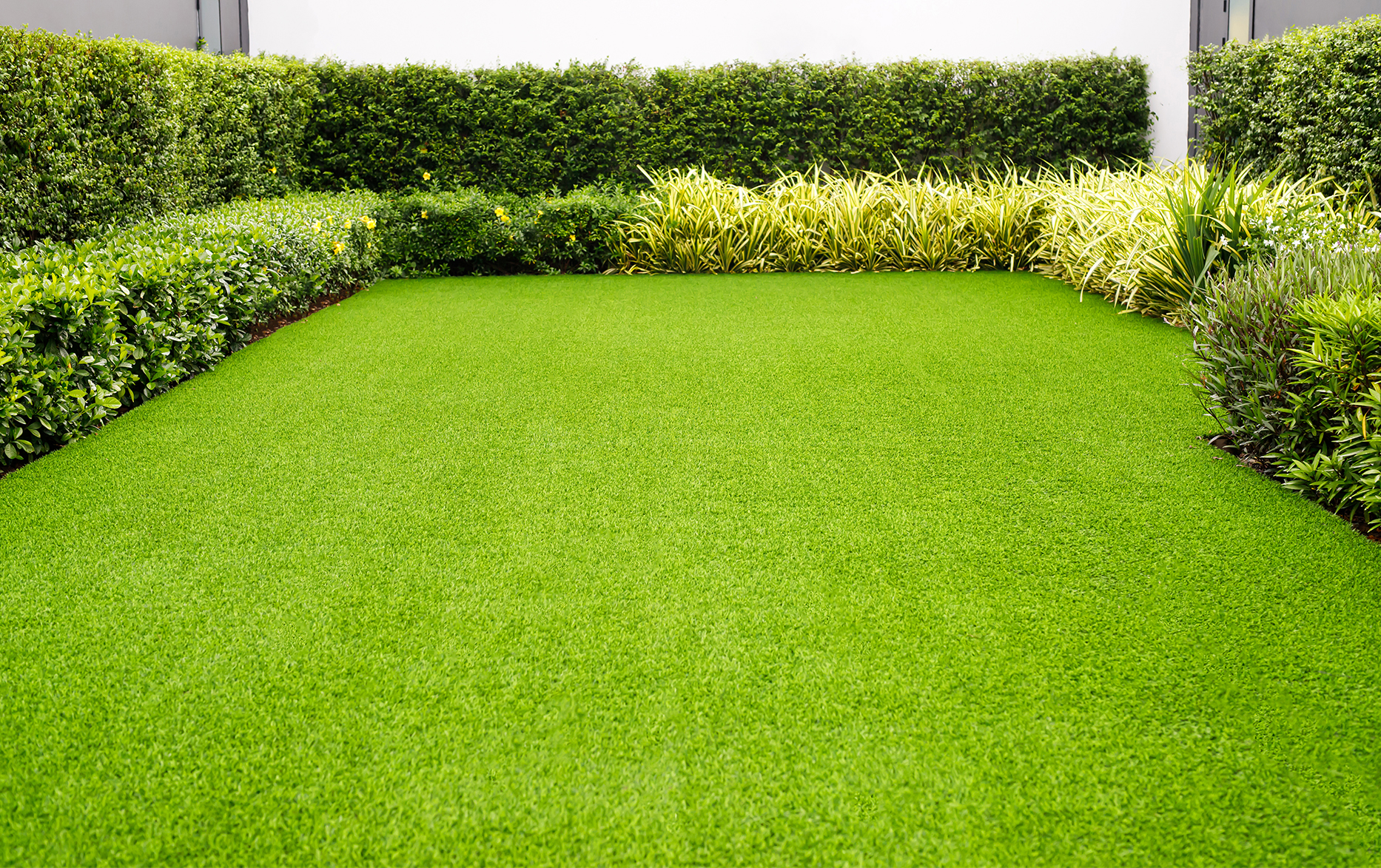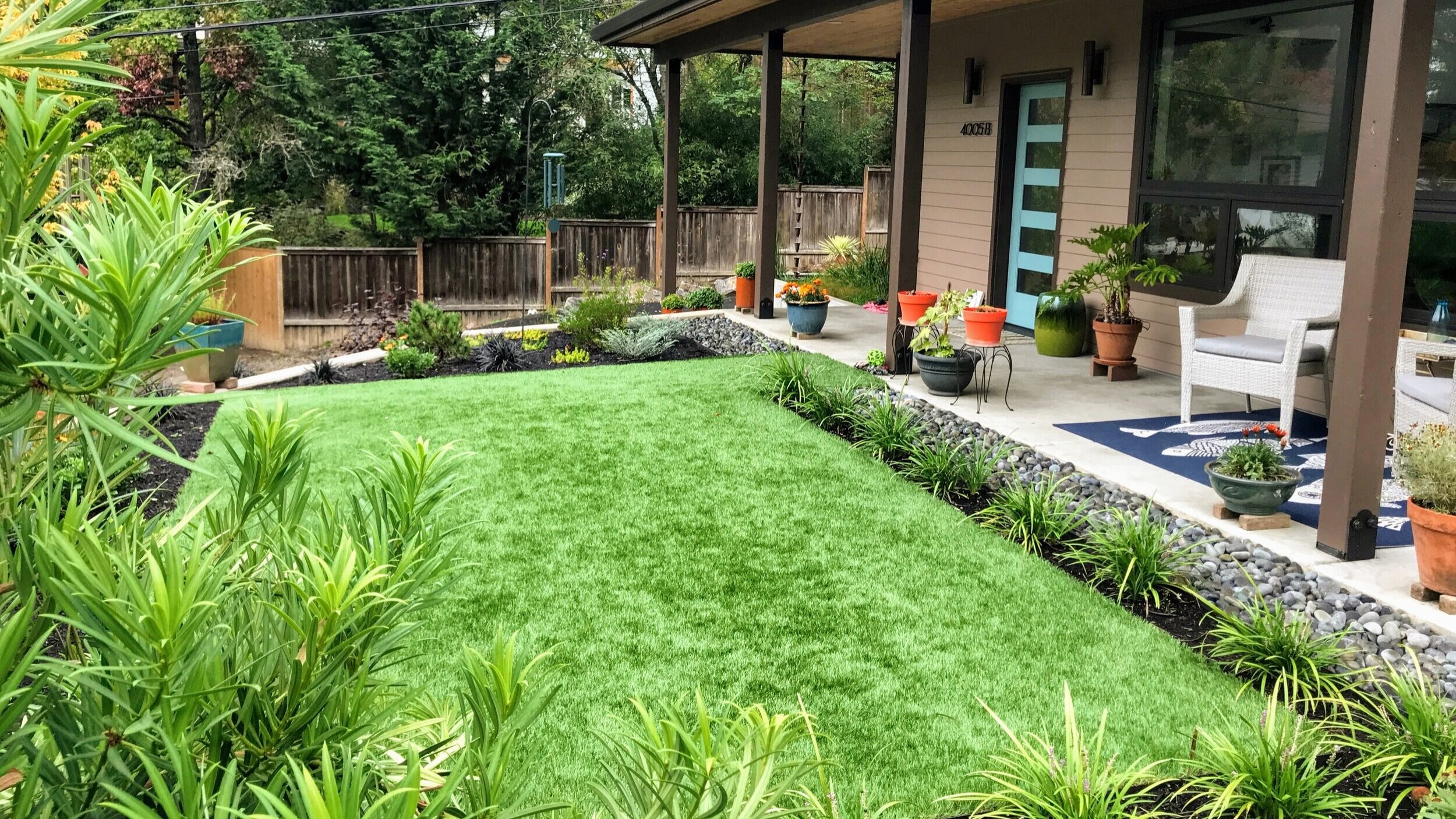Transform Your Yard with Reliable Turf Installation Phoenix AZ Solutions
Transform Your Yard with Reliable Turf Installation Phoenix AZ Solutions
Blog Article
See Why Homeowners Prefer Artificial Lawn for Sustainable Landscaping Practices
As homeowners significantly prioritize sustainability in landscape design, synthetic lawn has arised as an engaging choice to conventional yard. What stays to be discovered is the full range of advantages that synthetic lawn can provide to home owners and the environment alike.
Water Conservation Conveniences
One of the most considerable benefits of synthetic grass is its duty in water preservation. Conventional lawn lawns need significant quantities of water to maintain their lush appearance, often causing overuse of local water resources, particularly in deserts. On the other hand, synthetic grass eliminates this need totally, as it does not require irrigation. This not only saves water however additionally decreases the stress on local water supply, specifically throughout dry spell conditions.
Moreover, the setup of synthetic grass can add to a much more lasting landscape. Homeowners can dramatically decrease their water costs, permitting reallocation of sources to other environmental campaigns or family usages. In addition, synthetic grass is made to hold up against different climatic problems without the need for additional watering, making it an optimal choice for areas dealing with water scarcity.
The ecological advantages prolong past prompt water financial savings. By decreasing water consumption, synthetic grass assists to mitigate the influences of climate adjustment, protecting essential communities that are threatened by extreme water extraction. As lasting landscaping methods obtain grip, synthetic grass becomes a liable selection for home owners looking for to develop green outside areas.
Reduced Maintenance Initiatives
Synthetic grass considerably lowers maintenance efforts contrasted to traditional lawn yards. With synthetic lawn, homeowners can remove the time-consuming tasks related to natural landscaping, such as mowing, feeding, and weeding. This not just conserves important time yet additionally decreases physical labor, making yard treatment obtainable for individuals of all ages.
One of one of the most notable benefits is the lack of normal mowing. Traditional lawns call for frequent cutting to keep a visually pleasing height, whereas synthetic grass remains regularly rich without the requirement for cutting. Furthermore, house owners no more require to use chemicals or fertilizers, which are commonly called for to maintain natural turf healthy. This shift not just lightens the work yet additionally advertises a neater, much more uniform appearance year-round.
Moreover, man-made turf is resistant and sturdy, calling for very little maintenance beyond occasional cleaning and rinsing to get rid of debris. This convenience of maintenance allows homeowners to appreciate their outdoor rooms without the consistent worry of maintenance, providing even more time for leisure and family members tasks. Eventually, the lowered maintenance initiatives connected with synthetic grass make it an appealing alternative for those seeking a low-maintenance, aesthetically appealing landscape.

Ecological Influence Reduction
There is a growing recognition of the ecological benefits connected with synthetic grass, especially in regards to water preservation and reduced chemical use. Standard yards require considerable quantities of water, especially in drought-prone areas, resulting in enhanced stress on neighborhood water resources. In comparison, synthetic grass removes the need for irrigation, considerably lowering water consumption and promoting sustainability.
In addition, conventional yard upkeep often includes the application of herbicides, plant foods, and chemicals, which can contribute to soil and water contamination. Synthetic grass reduces this ecological danger by calling for minimal upkeep and essentially removing the demand for harmful chemicals. This not only enhances soil health and wellness however likewise shields neighborhood ecosystems from harmful runoff.
Furthermore, the production of natural turf lawns commonly involves using fossil fuels for cutting and landscaping devices, further Going Here adding to greenhouse gas exhausts. By picking artificial turf, homeowners can significantly lower their carbon impact related to grass treatment activities.
Aesthetic Appeal and Convenience
Along with its ecological benefits, synthetic lawn offers considerable visual appeal and adaptability for landscape design. Homeowners can accomplish a lavish, green appearance year-round, removing the seasonal variations typically connected with all-natural lawn. This regular aesthetic not only improves the aesthetic allure of a residential property yet also adds to a polished and well-kept look.
Moreover, synthetic grass is readily available in a variety of colors, styles, and textures, permitting customization to suit individual choices and layout motifs - Artificial turf companies phoenix. Whether made use of in domestic gardens, commercial rooms, or entertainment locations, it can effortlessly integrate into varied landscape design styles, from contemporary minimalist to lavish tropical settings
The flexibility of synthetic lawn expands beyond mere look; it can be set up in different areas, consisting of rooftops, patios, and also indoor rooms, producing opportunities for unique landscape design solutions. Additionally, it appropriates for a series of activities, from youngsters's play areas to pet-friendly settings, supplying functionality without endangering style.
Inevitably, the aesthetic allure and convenience of man-made turf make it an eye-catching choice for property owners looking for lasting landscape design services that do not give up beauty for ecological obligation.

Long-Term Expense Savings
One of one index of the most engaging advantages of artificial lawn is its possibility for long-term price financial savings. Unlike all-natural turf, which calls for routine maintenance-- consisting of mowing, watering, fertilizing, and parasite control-- man-made grass considerably reduces these recurring expenses. House owners can save a substantial quantity on water costs, particularly in areas where water shortage is a pushing problem. The removal of yard treatment services additionally contributes to monetary cost savings, as there is no need for specific tools or labor.
Additionally, synthetic grass has a lifespan of 15 to 25 years, depending on its high quality and usage. This longevity minimizes replacement costs, making it a more economical choice in the future. Additionally, the preliminary financial investment in fabricated lawn can often be recouped through the savings accrued over time.
While the in advance price may seem greater contrasted to turf installation, the cumulative savings from lowered upkeep and water usage frequently exceed these preliminary expenditures. Inevitably, the fostering of synthetic turf not just promotes a sustainable landscape design option however likewise offers homeowners a monetarily smart option that straightens with long-lasting budgeting objectives.
Final Thought
Synthetic lawn arises as an engaging option for lasting landscaping, offering considerable advantages in water preservation, decreased upkeep efforts, and diminished ecological effect. Its visual appeal and versatility improve the aesthetic landscape while straightening with modern sustainability objectives. Furthermore, lasting price savings add to its attractiveness for property owners. As communities significantly prioritize eco-friendly methods, the fostering of synthetic grass stands for a dynamic action towards achieving resistant go to these guys and lasting landscapes.
In addition, artificial lawn is designed to endure different climatic conditions without the need for supplemental watering, making it an excellent choice for areas encountering water deficiency. (Artificial turf companies phoenix)

Artificial lawn emerges as a compelling choice for sustainable landscaping, offering considerable benefits in water conservation, reduced upkeep efforts, and decreased environmental effect.
Report this page